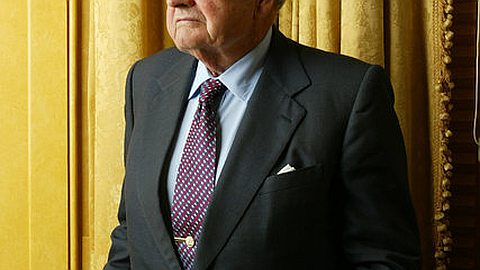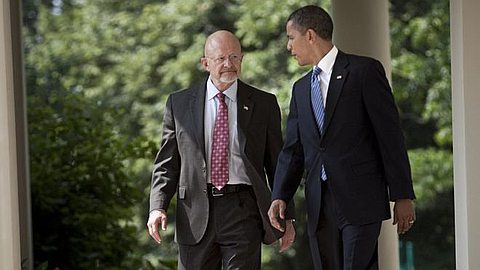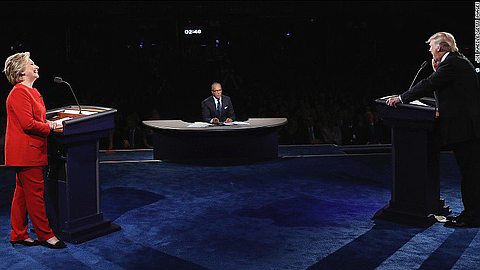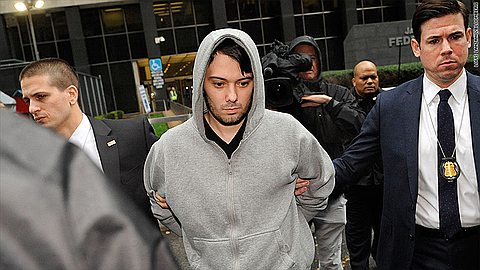Was Donald Trump’s Education Venture, Trump University, a Scam?
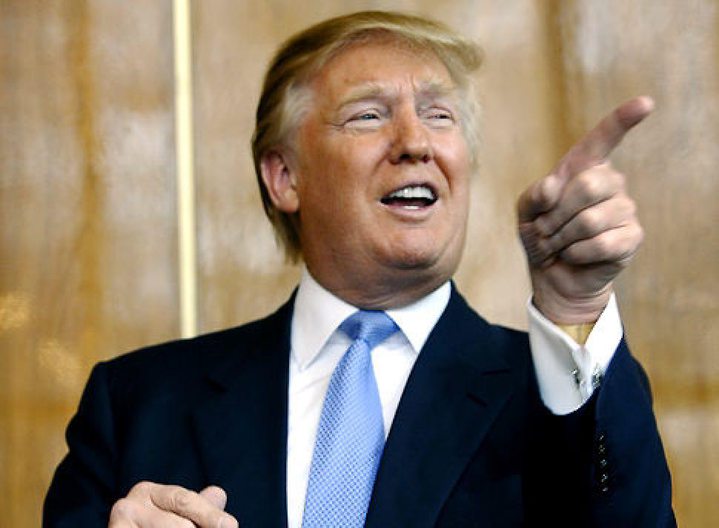
So they enrolled in Donald Trump’s university to learn the tricks of the trade, some of them maxing out their credit cards to pay tens of thousands of dollars for insider knowledge they believed could make them wealthy.
With Trump rising in the polls as the front-runner for the GOP presidential nomination, his brief foray into education is an episode — and a business failure — that remains far more obscure than other chapters of the celebrity billionaire’s career.
Never licensed as a school, Trump University was in reality a series of real estate workshops in hotel ballrooms around the country, not unlike many other for-profit self-help or motivational seminars. Though short-lived, it remains a thorn in Trump’s side nearly five years after its operations ceased: In three pending lawsuits, including one in which the New York attorney general is seeking $40 million in restitution, former students allege that the enterprise bilked them out of their money with misleading advertisements.
Instead of a fast route to easy money, these Trump University students say they found generic seminars led by salesmen who pressured them to invest more cash in additional courses. The students say they didn’t learn Trump’s secrets and never received the one-on-one guidance they expected.
It’s a chapter of Trump’s past that shows how he sometimes defies the usual laws of campaign physics. Such allegations of multimillion-dollar fraud might sink other candidates, but in Trump’s case, even some of the students who felt duped said they haven’t given up on him: They like Trump. They admire him. They might even vote for him.
“He says what he means, not like politicians, not like Obama,” said Louie Liu of Hurst, Tex. Liu, a motel owner, said in a sworn affidavit that he paid $1,495 for a three-day seminar, then felt lured into paying $24,995 for more classes, an online training program and a three-day in-person mentorship. A few days later, he called to ask for a refund, but his request was rejected. Trump University, he concluded, was a “scam.”
Trump’s attorneys vigorously deny the charges. Alan Garten, general counsel for the Trump Organization, said the company offered aspiring real estate investors a quality education and that all but a handful of students were pleased with it.
It is unbelievable, Garten said, that anyone could have thought that Trump University was a university in the traditional sense. Classes were held in hotel ballrooms, after all. “People who say, ‘I thought it was a university with a football team and a bookstore,’ it’s laughable,” he said.
Trump University was born in 2004, when two businessmen proposed to offer distance-learning courses in entrepreneurship under the Trump brand. Trump gave his blessing, according to court documents, becoming a 93 percent owner of the new enterprise.
By 2007, the business had evolved to focus on live real estate seminars. But Trump University was not a university in any legal sense, and beginning in 2005, New York State Education Department officials told the company to change its name because they deemed it misleading. The business became the Trump Entrepreneur Initiative in May 2010, and it stopped operating shortly thereafter.
New York Attorney General Eric Schneiderman (D) filed his $40 million suit against Trump and Trump University in 2013, alleging that Trump had illegally operated an unlicensed university and defrauded students. Approximately 80,000 people attended Trump University’s free introductory seminars, according to court documents. About 9,200 of them went on to pay $1,495 for three-day seminars, and nearly 800 paid up to $35,000 for packages that included mentorships and workshops.
“No one, no matter how rich or popular they are, has a right to scam hard working New Yorkers,” Schneiderman said in a news release at the time.
Trump attacked Schneiderman, calling him a “political hack” whose lawsuit was a publicity grab and a shakedown for campaign contributions. “We have a school that’s a terrific school. It did a fantastic job,” Trump told ABC’s “Good Morning America” in 2013.
Trump’s campaign referred questions to Garten, Trump’s lawyer, who said the allegations are baseless and expressed confidence that Trump will prevail.
“We’re completely winning this case,” Garten said.
Matt Mittenthal, a spokesman for Schneiderman, said the attorney general could not comment on the pending suit. “We will continue to pursue our claims against Mr. Trump in court on behalf of the people he defrauded,” Mittenthal said.
The judge in the New York case ruled last year that Trump is personally liable for illegally operating a university without a proper license. But the judge also ruled that the statute of limitations prevents Schneiderman from seeking restitution for most of Trump University’s students, a decision Schneiderman is appealing. Whether the university defrauded students and how much Trump might owe in damages are yet to be decided.
Trump University introduced itself to potential customers with advertisements on radio and television, and in newspapers. The ads promoted a free, two-hour real estate seminar and a chance to learn Trump’s strategies from his “handpicked instructors.”
“He’s earned more in a day than most people do in a lifetime,” reads a 2009 ad featuring Trump’s photograph. “He’s living a life many men and women only dream about. And now he’s ready to share — with Americans like you — the Trump process for investing in today’s once-in-a-lifetime real estate market.”
The ad goes on to quote Trump: “I can turn anyone into a successful real estate investor, including you.”
The soundtrack for the free seminars was “For the Love of Money,” the theme song for “The Apprentice,” Trump’s reality television show. Instructors allegedly told inspirational stories of their own business successes and then encouraged students to pay $1,495 for a three-day workshop.
Students said they were swept along by the promise that they were getting the best real estate education money could buy, according to interviews and several dozen complaints and sworn affidavits filed with the court. But they claimed that the seminars were another sales pitch: To learn how to make it in real estate, they needed additional workshops and mentoring at a cost of up to $35,000.
Bob Guillo put $34,995 on his American Express card to pay for the Trump Gold Elite package. He said he walked away with little more than meaningless certificates of completion and a photograph of himself with a life-size image of The Donald.
“I really felt stupid that I was scammed by Trump,” Guillo said. “I thought that he was really legit.”
Michael Sexton, a named defendant in the New York case who served as Trump University’s president, said in a sworn statement that the company provided quality, substantive instruction. Sexton referred questions about the litigation to Trump’s lawyers.
During the three-day workshops, Trump University instructors urged students to call their credit card companies and request increased borrowing limits, ostensibly so they’d have more capital to invest in real estate, according to students’ sworn affidavits. But the New York complaint alleges that the real reason was so students could buy Trump University packages.
John Brown said he was unable to afford a $35,000 package because his request for a credit-limit increase was rejected. He used two credit cards to buy a mentorship package for $25,000 instead, he said in an affidavit. He and his mentor went to Philadelphia for two days, he said, and walked through 20 properties together. But he never got the classroom training he expected from a university.
Schneiderman alleged that the program’s instructors had no particular expertise in real estate and that the seminars didn’t offer any special Trump strategies; he found that the curriculum was largely written by a third-party company that creates materials for motivational speakers and salesmen.
None of that is true, said Garten, Trump’s lawyer. Trump was “intimately involved in all of this,” Garten said, vetting résumés of potential instructors, offering suggestions about what should be taught and helping create case studies based on his own real estate acquisitions.
Besides the New York litigation, Trump also faces two pending class-action suits filed by former students. Trump is expected to give sworn testimony in one of those cases later this fall; a judge has ruled that he must disclose his investments in, and earnings from, Trump University. Judges in both cases have certified the classes, clearing a key hurdle for the plaintiffs.
Garten said he believes Trump will prevail in the class-action suits, pointing to sworn affidavits from satisfied students.
“Trump University gave me the information base, the inspiration and motivation I needed to get started in real estate investing,” wrote Mette Nielsen , a single mother of two who said she had earned $50,000 in the past year by flipping pre-foreclosure homes.
“I would like to state that I wish Trump University would go back into business. I would join right back up again,” wrote Meena Mohan, who said she now owns two rental properties because of what she learned from Trump courses and mentors.
Attorneys for Trump have posted 10,000 student evaluations of Trump University seminars to a Web site called 98percentapproval.com. Many of the people now complaining they were bilked, the site says, had only positive things to say on their evaluations.
One of those people is Guillo, who gave the program high marks. His main complaint was that the chairs could be more comfortable.
Guillo said that instructors pleaded with students to give them high ratings, and he complied, figuring it didn’t matter what he wrote. Now Guillo is watching incredulously as Trump campaigns for the Republican presidential nomination.
“He’s the biggest phony in the world, yet people as gullible as me think he’s the greatest guy in the world,” Guillo said. “When I watch him on TV, I’m really impressed. I think, ‘How can people believe in him?’ And I think, ‘Well, Bob, you believed in him in 2009. You gave him $35,000.’ ”
